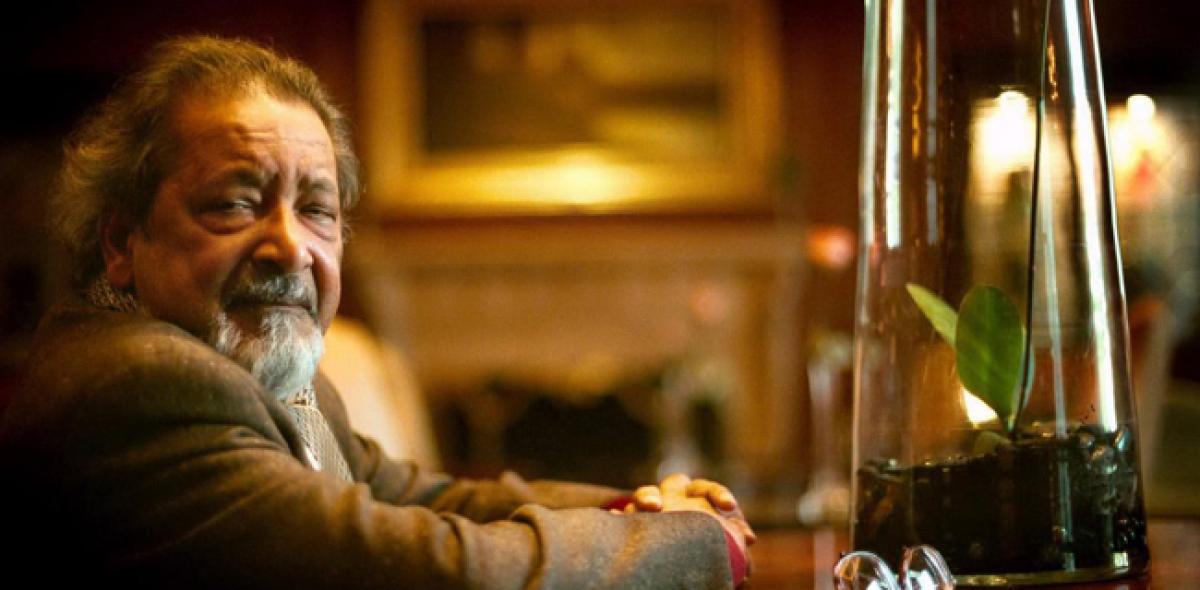Live
- Kolar’s Compassionate Leap: Mechanical Elephant Leads Temple Procession
- Centre to unveil startups under new National Quantum Mission guidelines
- Women’s protest rally in Imphal against re-imposition of AFSPA in 6 police station areas
- Greater Nicobar Island project has all environmental clearances: Govt
- Fadnavis leaves for Delhi, expected to meet Amit Shah along with Shinde, Ajit Pawar
- HYDRA-Relocated Residents Struggling with Severe Maintenance Issues at New Dignity Housing Colony
- BGT 2024-25: Jasprit Bumrah is one of the best in the world, says Pat Cummins
- BIS to develop standards for 214 critical medical devices by 2025 end
- HM Amit Shah pens story of co-operatives revival, gets thumbs up from PM Modi
- Next BJP govt will give pension to all 10 lakh elderly in Delhi: Virendra Sachdeva
Just In

Nobel Prizewinning writer V S Naipaul, known for his celebrated works like An Area of Darkness and A House for Mr Biswas, died at the age of 85 The literary fraternity mourned his passing and said his rich legacy will live on for generations to come
London/New Delhi: Nobel Prize-winning writer V S Naipaul, known for his celebrated works like "An Area of Darkness" and "A House for Mr Biswas", died at the age of 85. The literary fraternity mourned his passing and said his rich legacy will live on for generations to come.
No sooner did Lady Nadira Naipaul confirm on Sunday morning that her husband had died peacefully in London, condolence messages from readers and admirers flooded the social media.
"He was a giant in all that he achieved and he died surrounded by those he loved, having lived a life which was full of wonderful creativity and endeavour," Lady Naipaul said. Indian President Ram Nath Kovind and Prime Minister Narendra Modi led the nation in saluting the writer who shared deep ancestral ties with - and love for - India.
Also paying homage were prominent faces from the literary arena including Salman Rushdie and Paul Theroux who were often critical of Naipaul's works. Notwithstanding their differences with Naipaul, both were confident that his works would be read by generations to come.
Rushdie, who himself has Indian roots, said he had disagreed with Naipaul on politics and literature but felt sad "as if I just lost a beloved older brother". Added writer-historian William Dalrymple: "Even if you disagreed with much that he wrote, particularly about India, you couldn't help be stimulated, influenced and catalysed by the brilliance of his laser sharp vision."
Vidiadhar Surajprasad Naipaul was born in 1932 in Chaguanas on the island of Trinidad and Tobago to a family that had arrived from India in the 1880s. His life was one of many discoveries and Naipaul captured what he saw around him in his writings.
But even as his highly acclaimed books like "India: A Wounded Civilization" and "A Bend in the River" will live to tell his stories to future readers, his death brings an end to a rather fascinating literary journey with few parallels.
In a career spanning over five decades, Naipaul penned some 30 books, across literary genres, and established himself as a prominent voice among the writers of his time.
The early inspiration, as he had expressed on several occasions, came from his father, who was a journalist and, as Naipaul said, "a man of letters". His readings from literature was an important part of Naipaul's education.
However, the then would be writer-extraordinaire did not have "great things" to write about during his early days. He left Oxford University, where he had bagged a scholarship, and went to live in a cousin's flat, hoping to train himself as a writer. But he had no knowledge of what it was to be a writer.
His first book was so bad that a London-based publisher told him: "You should give this up, forget this work, do something else." And so he did, starting work as a presenter for the BBC on their programme Caribbean Voices. But he had one powerful ace up his sleeve.
"I believed in my own talent. I thought whatever I did would be alright in the end. If I wasn't true to my talent, that would be the end of me as a person. So I kept on writing despite drawbacks and lack of encouragement," Naipaul revealed at the Jaipur Literature Festival in January 2015, his last public appearance in India.
As decades rolled by, there was no stopping the writer in Naipaul. He went on to bag some of the most coveted honours bestowed on writers. He was awarded the Booker Prize in 1971 for "In A Free State".
Three decades later, in awarding Naipaul the 2001 Nobel Prize in Literature, the Swedish Academy praised his work "for having united perceptive narrative and incorruptible scrutiny in works that compel us to see the presence of suppressed histories".

© 2024 Hyderabad Media House Limited/The Hans India. All rights reserved. Powered by hocalwire.com







